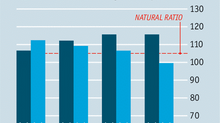The Infamous Gap Year
- Lesley Quizhpe
- Nov 1, 2014
- 4 min read
Deciding whether you should attend law school straight out of college or even after a few years has become an integral part of the application process. Many students question whether taking a “gap year” would be an advantage or disadvantage to their candidacy as law school applicants, but neither choice for the most part has a detrimental impact on a student’s overall course of action. Taking a “gap year” seems to provide students with resources that were very limited throughout their college journey: time and experiential exploration, which in turn allow them to better contemplate or understand their decision behind attending law school overall. Ultimately, applicants are advised to make this decision on the basis of their ability to get back into an academic mindset after taking a break. These applicants also need the ability to map out career destinations right away because investing in a law degree has continuously evolved into a large financial commitment.
Having recently joined the Structured Products & Derivatives Legal team at J.P. Morgan Co., I’ve had the opportunity to talk to many of the lawyers on my team. In particular, I have sought out their thoughts on the infamous “gap year” and, although many of them attended law school right after college, they have indicated that they wish they had taken some time off. For many of them, they felt that law school environments required law students to be in a different mindset than the one in which most college graduates go into law school with. What they were referencing was the fact that many applicants dive head first into applying to law school without contemplating or understanding the main reason behind their motivation and dedication. Most university seminar forums on this topic do not take into consideration the students who are particularly contemplating the idea of going to law school. Pursuing a “gap year” would be a great opportunity to explore other graduate programs and experiential learning opportunities without the risk of taking on a financial burden. Evidently, these programs cost money as well, but what my colleague was referencing was that students with financial burdens after law school tend to stay within the legal field even if that is not their choice of interest because the work compensation allows them to balance their financial debt. Thus, the “gap year” serves as a great tool to reassure yourself that the financial commitment you will undertake would not become a regret but a stepping-stone to your actual desired field. For instance, one of my colleagues who recently took the Bar exam suggested attempting to gain admission into analyst programs as a means to not only attain work experience but to also explore the various areas of the firm that incorporate a legal approach to its overall work. He felt that these programs do not only allow you to save some money for your main objective: law school. These programs also act as a gateway into a network, allowing you to build strong relationships with individuals who may look out for your best interests once you’ve come out of school. These programs act as a gateway and are great experiences for students to undergo because they are exposed to the various real world career opportunities law school will offer.
Perhaps you will use your gap year to take part in programs such as the Peace Corps or Teach for America, which are great ways for you to discover which academic fields you are more interested in and which ones you will less actively pursue or even stay away from. Building this mindset before attending law school gives you an advantage when you apply because not only have you taken a different journey than most traditional applicants but also, when you are undergoing the application process, you will have substantial experiences at your disposal--experiences from which you can articulate conversations during interviews or incorporate in your personal statement.
On the other hand, the gap year can have some disadvantage or even no change in the evaluation of your application. As a student, you may have chosen to use your “gap year” as a means to explore non-academic or non-career interests and even perhaps to study more efficiently for the LSAT or re-take the exam; this in no way is devalued, but most schools would then either question your motives behind the academic pause or just brush over it. This entirely depends on the length of time off you have taken (one to three years) usually has zero to little affect, but it can be troublesome when you have taken more than three years to contemplate applying to law school. As an applicant having a longer gap before college and applying gives admissions officers the presumption that you are not ready (time-wise) to face the academic and competitive commitment of law school at this point. Taking a “gap year” relies on what endeavors you pursue during the time, the length of the gap, and what you have ultimately learned about your personal character, interests, and motives. The greatest advantage that the infamous “gap year” can provide is that he or she will present him or herself as a well-rounded individual; one who has not only undertaken a multitude of endeavors but has understood that the homogeneity among American law schools does not solely ensure or provide you with the analytical skills required in the legal field.



















Comments